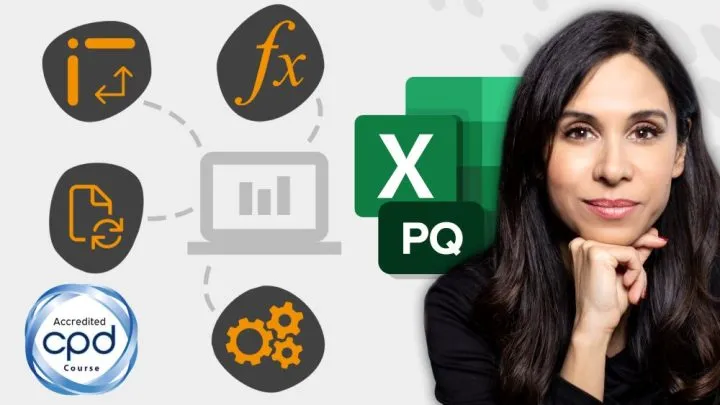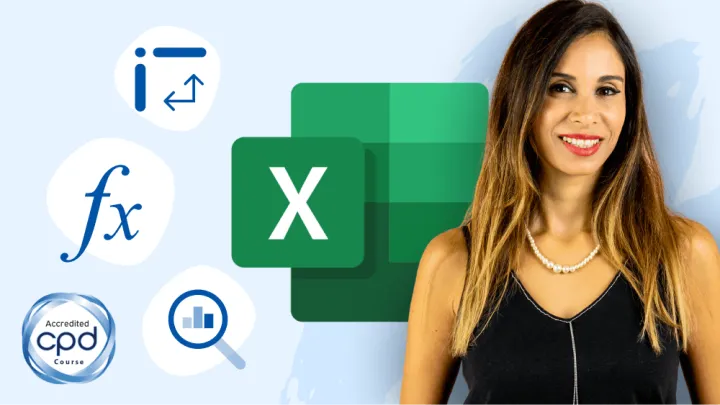Insert Pictures into an Excel Cell
To insert an image into a cell, select the target cell, then click Insert (tab) – Illustrations (group) – Pictures – Place in Cell and select the source of the picture.

NOTE 1: To use the “Mobile Device…” option, you must be running Windows 11 on the PC and iOS 14 or above for Apple devices, or Windows 10 or 11 and Android 7.0 or later for Android devices.
NOTE 2: The “Place over Cells…” option works like the traditional “Insert Image” method in earlier Excel versions.
You can select 1 or multiple pictures using the CTRL key during the selection process. If multiple pictures are selected, the images will be inserted in multiple cells starting from the initially selected cell.


Resizing Cells to See Pictures More Clearly
When the cells are resized via row/column resizes, the images will attempt to fill the cell as best as possible without distorting the image.

Other Picture in Cell Options
If you right-mouse-click on the cell with the image, you will see additional options for the Picture in Cell.

You can convert it to Picture Over Cell.
You can Create a Reference. This creates a new picture over cells that actually points to the cell with our original picture. When you select the new picture, the formula bar shows the cell reference. They are linked, so if you change the picture in cell, the referenced picture over cells will update as well.

You can Show Preview, which pops out a card with an enlarged picture (you can also call it with the shortcut Ctrl + Shift + F5).

Converting Pictures over Cells into Pictures in Cells
If you would like to convert an image inserted over cells – perhaps update some of your older workbooks – you can simply right-mouse-click on the image and select “Place in Cell”.

The image will shrink to fit the nearest cell.
Featured Course
Excel Essentials for the Real World

Using Images in Excel Tables
Tables that contain images can be “upgraded” to proper Excel Tables using the CTRL-T shortcut.
Cells containing images will display “Picture” in the Formula Bar.

However, if you assign alt text to the pictures, you get to display the actual descriptions you define (thanks to Bill “Mr Excel” Jelen for this tip!).
Right-mouse-click on a cell with an image and go to “View Alt Text“.

A pane will pop up on the right side of the screen, where you can populate (manually) the text you want displayed for this picture. In this case it makes sense to go with names. As soon as you enter the alt text, notice the “Picture” in the formula bar changing to the text you’ve entered.

Return Images Using Excel Lookup Formulas
Imagine typing in a part number, or employee number, and having an image of that part or employee appear in a cell.
Lookup formulas can return images that are stored within cells, just like any other type of returnable data.
NOTE: In the following 2 examples, the formulas use traditional cell references for easier understanding of the illustrations. In reality, the formulas would use Structured References because the tables are formatted as proper Excel Tables.
For example, when using a VLOOKUP function, a single image can be returned.

When using a FILTER function, multiple images can be returned.

The FILTER function will return every row from the array A2 through B21 based on a match between the selection made in cell F2 and the values in the range C2 through C21.
The names and their corresponding pictures are returned in the spilled array of results.
Because the table of managers, pictures, and projects is a proper Excel Table, when new rows are added to the table, the formula will scan and return results based on the expanded data range.
Older Excel Versions
While lookup of images is possible in older Excel versions, setting it up is much more involved. Still, if you don’t have Excel 365, you are not without options. See how it can be done in this post: Lookup on Pictures in Excel.
Featured Course
Master NEW Excel Functions in Office 365 & Office 2021

Displaying Images From a URL
Images can also be displayed based on URL information. That’s were the IMAGE function comes in.
The syntax for using the IMAGE function in this manner is:
=IMAGE(source, [alt_text], [sizing], [height], [width])For example, to display the image of a database icon from the following URL (https://tinyurl.com/bded3nsm), the formula would appear as follows.
=IMAGE("https://tinyurl.com/bded3nsm")
NOTE 1: If the URL to the image file you are using is pointing to a site that requires authentication, the image will not render.
NOTE 2: The IMAGE function is available in the latest versions of Excel for Microsoft 365 (version 2211 or later).
If you want to see this method in action, check out this short video.
Looking Up Images to Return Related Data
Believe it or not, Excel can take an image as a lookup value, search for it in a list of images, and return related information. 🤯
If we were to copy/paste an image into a cell, we could use a lookup function like XLOOKUP to locate the name of the person connected to the image.

Final Thoughts
More Potential Use Cases
As you just saw, this feature opens many exciting possibilities, especially if we combine it with another functionality that was recently introduced, namely images in pivot tables. Intrigued? Check out my video on this topic: Create Pivot Tables Like NEVER Seen Before!
A word about availability and functionality
The Image in Cell feature showcased in this post is operating in Beta Phase and is only available to Office Insiders (as of Summer 2023). If you are lucky enough to have received this feature, keep in mind that it may not work properly in every situation, and certain functionality may not be fully baked.
NOTE: It currently not supported in Excel for the Web (the pictures in cell will display as ######). Make sure to open the practice workbook in Excel 365 for Desktop.
Practice Workbook
Feel free to Download the Workbook HERE.

Featured Course
Black Belt Excel Package

Leila Gharani
I'm a 6x Microsoft MVP with over 15 years of experience implementing and professionals on Management Information Systems of different sizes and nature.
My background is Masters in Economics, Economist, Consultant, Oracle HFM Accounting Systems Expert, SAP BW Project Manager. My passion is teaching, experimenting and sharing. I am also addicted to learning and enjoy taking online courses on a variety of topics.












